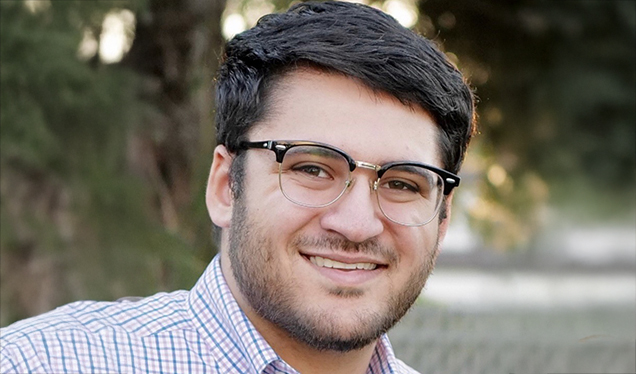
Meet Peter Shah, a focused 3L law student with a passion for tax law, finance, and client advocacy. From tackling impactful family law projects to exploring innovative solutions in tax law at KPMG, Peter’s diverse experiences highlight his adaptability, teamwork, and pursuit of excellence. Discover how his unique journey shaped his legal aspirations.

What drew you to pursue a summer internship in tax law at KPMG, and what did you find
most interesting about working in this area?
When I started law school, I did not consider working anywhere other than a law firm.
My mind was closed to other possibilities because I did not know they existed. I discovered
that places like KPMG, an accounting firm, hire lawyers through an email from OCS.
After reading about the legal opportunities at KPMG in tax law, I quickly identified
the role as something I would be interested in because of my background studying business.
Once I started working, I found it fascinating how an accounting firm utilizes both
lawyers and CPAs to collaborate on tax work. Instead of being separated from other
team members without legal backgrounds, I was encouraged to work with them so that
our unique expertise could collectively influence solutions to clients' problems.
How has your background in finance from Seton Hall's Stillman School of Business influenced
your approach to legal studies and practice?
Attending business school has significantly influenced the scope of my future career
as well as my legal studies. In school, my background in business has caused me to
gravitate toward classes focused on serving businesses as clients. In practice, this
background has helped me understand the language of businesspeople and their issues.
Studying finance specifically has equipped me to comprehend complex financial matters,
which was invaluable when working with the large clients we served at KPMG.
Can you describe a particularly challenging project you worked on at Lyons & Associates
and how you approached it?
During my internship at Lyons & Associates, a family law firm, I worked on preparing
a manual for litigating domestic violence cases to be used by pro bono attorneys.
This project was challenging because of how impactful it felt. I knew the work I was
doing would be used by real attorneys helping real people facing real problems. It
was my first experience since entering law school where my work had tangible ramifications
outside the classroom.
What was your experience presenting on legal issues in estate planning to wealth managers
at Modera Wealth Management?
While at Lyons, I had the opportunity to do a presentation with the estate planning
partner in front of an audience of wealth managers. We presented during June, Pride
Month, on unique estate planning considerations for LGBTQ+ clients. This was a unique
experience because, rather than directly serving clients, we helped wealth managers
better serve their clients. It was rewarding to feel like I was empowering experts
in wealth management to protect their clients’ assets in new ways.
How did your role as a Service Valet at Paul Miller BMW help you develop skills applicable
to your legal career?
At Paul Miller BMW, the biggest thing I learned was how to work on a team. Initially,
I assumed I would work alone most of the day, but I ended up spending the majority
of my time collaborating with others. This has been very applicable in my legal career
so far because legal work often involves extensive collaboration. In both legal experiences
I’ve had, no work product is ever finalized until multiple people review and refine
it.
Can you share an instance where your experience as a DoorDash delivery driver taught
you valuable lessons about customer service and time management?
Working as a DoorDash driver during COVID taught me valuable lessons about dealing
with customers. People who are hungry are a lot like people facing legal problems—both
can be agitated, grumpy, and stressed out. Learning to keep my composure while dealing
with “hangry” people has helped me remain calm when clients become emotional.
How did your internship at Monaco Experiences influence your understanding of client
relations and contract management?
My internship at Monaco Experiences, a rental car company, taught me a lot about how
individuals without legal training handle contracts. Many clients would quickly sign
contracts without reading them, focusing only on the price and ignoring other important
terms. This experience underscored why people need lawyers to review agreements they
often haven’t read themselves.
What aspects of tax law do you find most intriguing, and how do you see this field
evolving in the future?
One aspect of tax law I find particularly intriguing is the role of artificial intelligence.
When I started at KPMG, they had just begun rolling out their own internal AI for
use by all tax professionals. While other areas of law may fear AI’s growth, tax law
seems to embrace it. I believe AI will eventually become the norm in tax law, rather
than something novel.
How have you balanced your academic responsibilities with your various work experiences,
and what strategies have you found most effective?
The best way I’ve balanced academic responsibilities with work experiences has been
by taking breaks. Going straight from the end of the school year to starting work
can be challenging, so I make it a priority to take breaks whenever possible to recharge.
What are some of your favorite destinations you've traveled to, and how has traveling
enriched your perspective both personally and professionally?
Some of my favorite destinations include Ireland, Greece, and Mexico. Traveling internationally
has enriched my personal and professional perspectives by exposing me to how other
cultures live. Seeing the priorities of different groups of people helps me reevaluate
my own choices. For instance, cultures that emphasize community and family remind
me that, while I strive to be a successful lawyer, I also want to prioritize being
a good person. This perspective ultimately helps me become the best lawyer I can be.